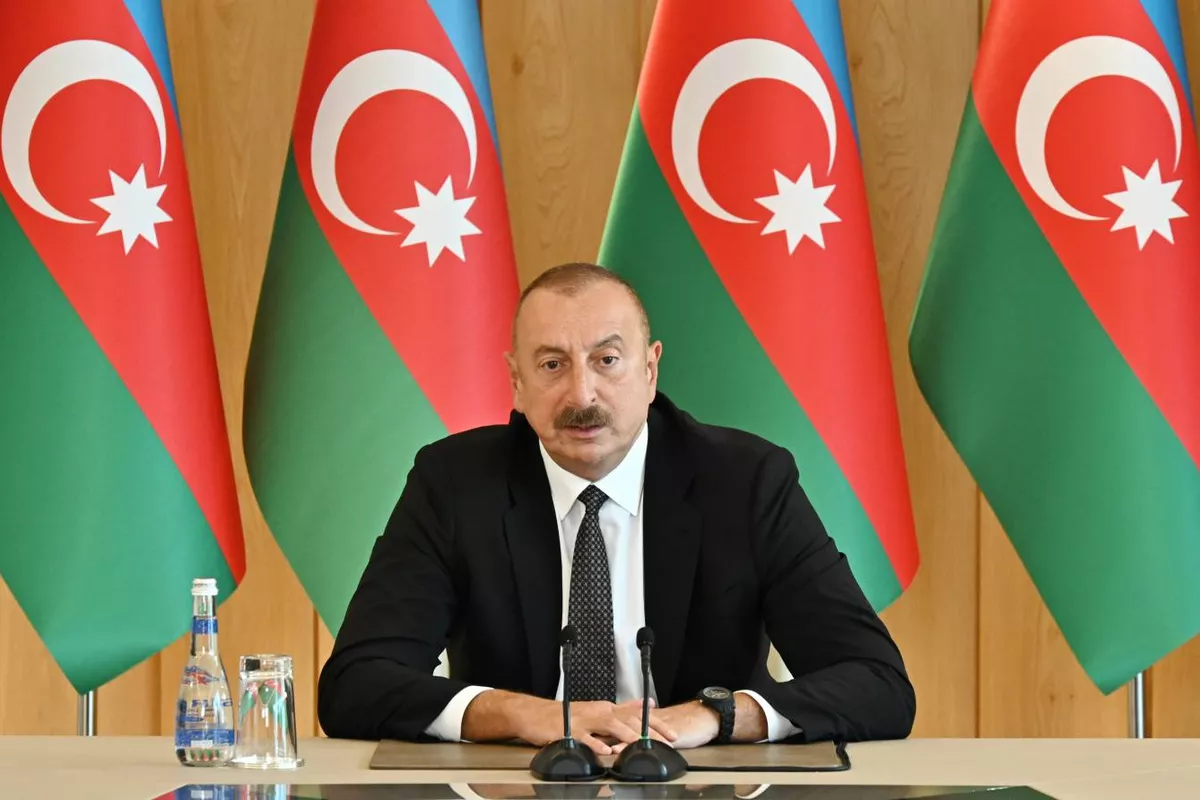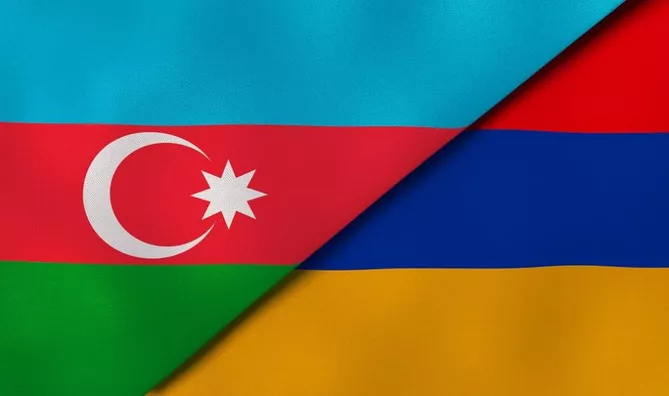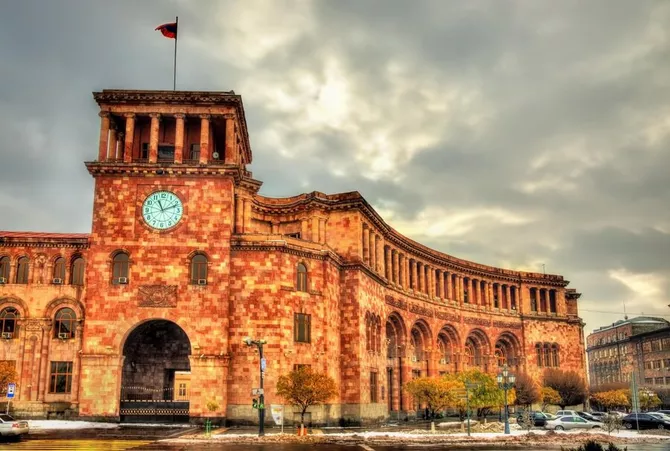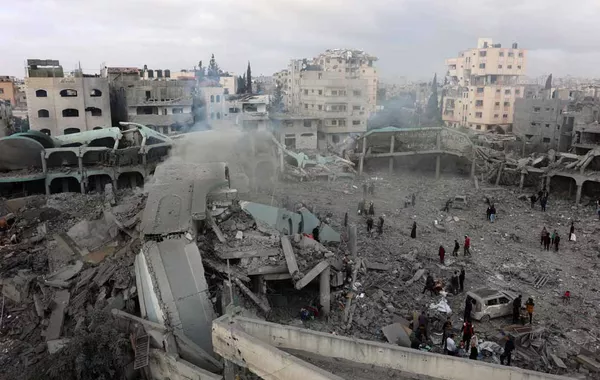
photo: president.az
On October 27, Armenian media reported that Armenia’s Foreign Minister Ararat Mirzoyan had announced an invitation to Azerbaijani President Ilham Aliyev to attend the European Political Community summit, scheduled to be held in Yerevan in May 2026. Mirzoyan added that “the invitation is currently being formalized.” The news drew wide attention, with many interpreting it as a possible sign of a new stage in Armenian-Azerbaijani relations.
However, as Caliber.Az learned from diplomatic sources, a visit by the Azerbaijani head of state to Yerevan is not possible at this stage. The reasons lie in the current state of relations between the two countries and the logic that Azerbaijan has consistently followed in matters of peace and regional stability.

photo: aircenter.az
The Peace Agenda: Baku’s Initiative
From the very beginning, Azerbaijan has been a proponent of constructive dialogue. In fact, it was Baku that proposed the foundation for a future peace treaty - five key principles that include mutual recognition of territorial integrity, respect for sovereignty, and the renunciation of territorial claims. These principles became the basis for the draft peace agreement that was initialed in Washington.
The Washington process marked an important milestone. It not only consolidated the agreed text of the future treaty but also outlined the political and legal framework for normalizing relations between Azerbaijan and Armenia. In the U.S. capital, a trilateral declaration was also signed by President Ilham Aliyev, U.S. President Donald Trump, and Armenian Prime Minister Nikol Pashinyan. The declaration emphasized the need for the prompt opening of all regional transport links, the unimpeded movement between mainland Azerbaijan and Nakhchivan, and the development of mutually beneficial transport and economic connections.
Societal Contacts: A Step Toward a New Reality
Against the backdrop of political negotiations, civil society initiatives have also begun to develop. The recent visit of a group of Azerbaijani public figures to Yerevan was an important signal that dialogue is extending beyond official diplomacy. Such initiatives aim to reduce mutual distrust and build a social foundation for a sustainable future peace.
Baku views these processes positively, as they can strengthen public trust and facilitate the implementation of political agreements. Expanding interaction between experts, journalists, and public figures contributes to forming a new atmosphere in which the idea of peace becomes not just a diplomatic slogan, but part of everyday reality.
Why Aliyev’s Visit to Yerevan Is Not Yet Possible
Despite the positive trends, several key issues between the two countries remain unresolved. Yes, peace has been established de facto: hostilities have ceased, borders are calm, and work has begun on the technical aspects of border demarcation and delimitation. However, de jure this process is still incomplete. A formal peace treaty has not yet been signed, the parties’ obligations have not been legally fixed, and enforcement mechanisms have not been developed.

photo: aircenter.az
For this reason, according to Caliber.Az sources, a visit by President Aliyev to Yerevan would be premature. Azerbaijan’s diplomacy is built on the principle of real actions, not symbolic gestures. Attending the summit without a signed peace treaty could create the false impression that the peace process is complete, when in reality, it is still far from being finalized.
Moreover, such a visit could be interpreted as a sign of Baku’s readiness for political contacts “at the highest level” without guarantees that earlier agreements will be honored. For Azerbaijan, this is unacceptable. The country clearly distinguishes between symbolic steps and tangible results, adhering to a pragmatic approach to politics.
Baku’s Logic: Actions Before Symbols
Azerbaijan has consistently maintained that every political step must have concrete substance. Any high-level engagement must rest on a solid legal basis, practical achievements, and the mutual fulfillment of obligations.
President Ilham Aliyev has repeatedly emphasized that a lasting peace is possible only when both sides move beyond declarations to concrete action - opening transport corridors, restoring communications, recognizing borders, and fulfilling agreed commitments. Since none of these points has yet been fully implemented, a visit to Yerevan would appear as a political gesture lacking real content.
Looking Ahead
At the same time, the possibility of high-level visits in the future is not ruled out. On the contrary, once the peace treaty is signed and its implementation begins, such visits will become a natural and logical continuation of the process. Only then will meetings between the leaders of Azerbaijan and Armenia carry genuine political meaning, symbolizing not just dialogue, but the true end of the conflict and the beginning of a new era of cooperation.
For now, the main priority remains completing the legal formalization of the agreements reached and ensuring their implementation. Only in this way can peace be consolidated not just de facto, but also de jure, creating a solid foundation for future regional cooperation.
Thus, President Ilham Aliyev’s absence from the 2026 Yerevan summit should not be seen as a setback in relations. On the contrary, it reflects a balanced and mature political approach. Azerbaijan prefers not to rush into symbolic gestures until the moment comes when they truly reflect a new reality - one of peace based on mutual respect, sovereignty, and equality.
Share on social media
